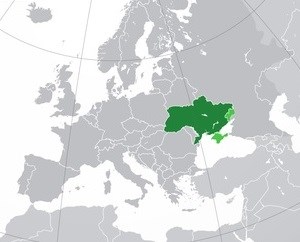“I put this on the agenda: the rationale for Europe today is about power, not peace.”
Tony Blair (2011)
 The timing of Putin’s very real threat to Ukraine is no coincidence: it is the convergence of three disparate issues, only one of which has been steered by Russia: energy pricing.
The timing of Putin’s very real threat to Ukraine is no coincidence: it is the convergence of three disparate issues, only one of which has been steered by Russia: energy pricing.
It has been clear for some months that the significant moves in Europe away from coal, the limited availability of alternative energy generated by wind and solar, and the decision (particularly in Germany) to reduce reliance on nuclear, has granted the Russians monopoly supplier rights in gas pricing: and we are all feeling the pain of that predatory push.
However, the added opportunities granted to Putin by the withdrawal from Afghanistan and a period of weak and changing leadership in the European Union - and, he may consider (perhaps wrongly), in the UK - have converged to deliver a time of real danger for Eastern Europe.
So in this commentary we support the call for a strong free world response to this threat, and welcome the resolve being shown by the British Government.
On 9th June 2011, The Times headline read ‘Europe needs a leader’, reporting on Tony Blair’s quotation at the head of this commentary. Unfortunately, the European Union took no notice of it and Great Britain, then an EU member, wouldn't have wanted it anyway. That's partly why we voted for Brexit in 2016.
But Tony Blair was, and still is, absolutely right. We echoed the call in this commentary seven years later, in November 2018: calling for a referendum among EU member states to test support for an elected president. Needless to say, our call received much less attention than Tony Blair's.
As a result, and particularly at a time of major leadership change in Germany as we move into the post-Merkel era, the EU's response to Russian aggression looks - and is – pathetic. The most significant conversation to have taken place is the recent Macron - Putin telephone call, and that appears to have strengthened, rather than weakened, Russian resolve.
A single point of elected leadership of the European Union is, of course, vital not only for peace but also for economic progress. After two debilitating years of the pandemic, the debt crisis for countries such as Italy has risen to truly alarming proportions, and the only solutions being put forward are those contrived by regulatory committee meetings in Brussels. It is an accident waiting to happen.
But, as Rory Stewart explained in Radio 4’s Broadcasting House programme on Sunday, the evacuation of Afghanistan could also not have happened at a worse time, for emboldening Russia. President Biden’s administration may look at it otherwise, but in Russia and China it must appear as if America is in a mood of tactical retreat - hardly the environment needed to keep Ukraine and Taiwan safe.
We should also note in this last respect the announcement from Bank of America considering exit plans from Hong Kong: confirmation, as if you needed it, that authoritarian regimes leave little scope for free enterprise, let alone democracy.
So, this is indeed a dangerous time, and it will be with us for quite a while. The stranglehold over gas supplies will take years to resolve, and the EU presidency shows no sign of strengthening: so it is up to the United States and the United Kingdom to recognise the challenge, and to show resolve.
That's why we should not dismiss Boris Johnson’s close involvement this week as an attempt to distract attention from the current political bear-baiting in Westminster and the UK media. (Having said that, it was interesting that the BBC picked up on a 2006 interview with Boris when he expounded his ‘brilliant new strategy’ of making ‘so many gaffes that nobody knows which one to concentrate on’. Perhaps it's time to retire that strategy - it might have worked for the past fifteen years, but it has certainly run out of road now.)
Boris has got quite a few successes notched up on the wall. His Government's handling of the pandemic has been on no account an unqualified success, but the swift roll-out of the vaccine has led to the headline ‘Britain closer to end of Covid pandemic than any northern hemisphere country’, and the swift establishment of furlough, which has enabled people to return to full employment without delay, has provided a huge boost to the economy in comparison with other countries.
But can Boris take a leaf out of his Churchillian inspiration to deal with the Russian threat to Ukraine – and, potentially, to other Eastern European nations? I would suggest that, in order to achieve this without recourse to military action (which would be disastrous for all parties), he must find ways to tackle those three convergent issues:
- The Russian gas stranglehold on the European Union, and on energy prices, must be removed;
- The United States must demonstrate its commitment to ‘Pax Americana’, notwithstanding the evacuation from Afghanistan; and
- the European Union must be encouraged to establish an elected president without further delay, now that The United Kingdom is no longer there to stand in its way.
Let us hope that Boris and the indomitable Liz Truss make some serious progress in these areas over the next few days.
Gavin Oldham OBE
Share Radio

